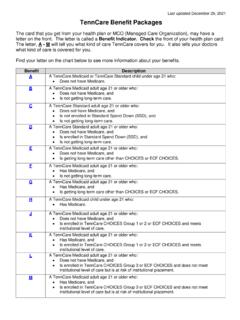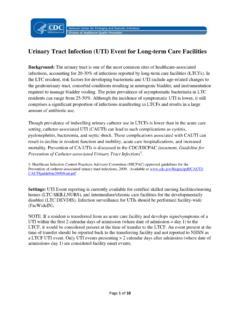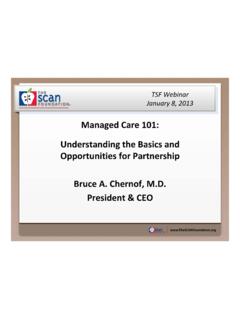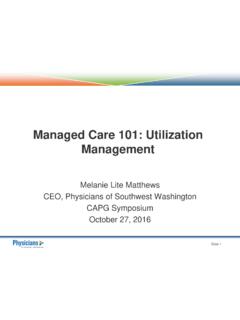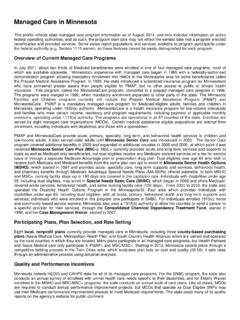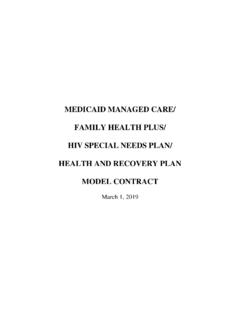Transcription of Frequently Asked Questions - Easton Elder Law
1 Frequently Asked QuestionsFAQ #1: What exactly is an Elder law attorney and what do they do ?Answer:An Elder law or Elder care attorney is a lawyer who has chosen toconcentrate his or her legal practice in areas that deal with the issues ofaging and the many social, economic and legal issues which confront andchallenge our swiftly growing senior population. An Elder law attorneyprovides service and guidance on legal matters such as estate and longterm care planning, social security, Medicare, Medical Assistance for LongTerm care Support and navigating the federal and state public laws andbenefits available to the Elder population. An Elder care attorney helps amilitary veteran and their spouse with veteran benefits, such as aid andattendance payments for home bound or assistant living care . An Elder law attorney provides help and peace of mind to families andloved ones who are transitioning the Elder care journey. FAQ #2: What is the difference between estate planning and long term careplanning for nursing home care costs ?
2 Answer:Estate planning is generally the term used to describe the process of organizing and planning the orderly transfer of your wealth upon yourdeath. Frequently , estate planning will deal with death and inheritance taxissues. The purpose of estate planning is to make sure that what youhave goes to whom you want, in the amount and manner you desire, suchas by outright bequests or the placing of assets in a trust for the benefit ofthe spouse, children or grandchildren. Estate planning addresses theissue what happens to my assets when I die. long term care planning combines the goals of estate planning along withthe concerns of protecting and preserving assets from the very substantialcosts of long term care , such as extended home bound or institutionalizednursing home care . long term care planning addresses the question: What if I become seriously ill and disabled and will need extensive homebound care or need to live in a nursing home for a long time ?
3 An Elder law attorney is a person who can address and plan for bothconcerns, death and disability requiring long term nursing home care . FAQ #3: If I go into a nursing home, will I have to turn over all my propertyand money to the nursing home ?Answer:No, in order to be admitted into a nursing home you do not have to signover your house and all your assets. When you or a loved one enters anursing home you or your authorized representative will sign a NursingHome Admission Agreement (a contract). This contract will set forth theservices to be provided and the cost you will pay for these services. Ifable, you may leave the nursing home at any time. You will be using yourmoney, and perhaps some payments by Medicare, to pay for the nursinghome and when you run out of money and are still in need of full-time nursinghome care , you can apply for the payment of your nursing home bill by thefederally sponsored and state administered program commonly referred toas either Medicaid or Medical Assistance for long term care support.
4 If you would like to take steps to save and protect your assets beforepaying everything to the nursing home, you should see an Elder lawattorney for the development of an estate and long term care plan tolegally protect your savings and achieve eligibility for Medical Assistancefor nursing home care . FAQ #4: Can I give all my money to my kids just before going into a nursinghome and then be eligible for the federal and state MedicalAssistance/Medicaid program to pay my nursing home bill ?Answer:Well, it depends when and to whom the gifts were made. Eligibility for thegovernment program commonly known as Medicaid or Medical Assistancefor long term care support is very strict on the gifting of assets andtransfers for less than fair value. Generally, all gifts or such transfersmade within five (5) years of entering a nursing home need to bedisclosed and reported on the Medicaid Application Form and sworn tounder oath. Gifts made within five (5) years could result in the denial ofeligibility and benefits for a period of days or months depending upon theaggregate value of the gifts and the application of a formula.
5 However,gifts below a certain amount or to a disabled child, even if made within five(5) years, may not be subject to a penalty period of ineligibility. Gifting by a person who is concerned about the possibility of having toenter a nursing home within five (5) years should seek expert advice froman Elder law attorney to understand the applicable Medicaid gifting rules,what gifting may be permitted, and the penalty of ineligibility which wouldbe imposed for non-permitted #5: Can I gift $10,000 per person to my children and loved ones withoutincurring any penalty period of ineligibility for Medical Assistance topay my nursing home costs ?Answer:Generally, no. The $10,000 per person per year gift is permitted underthe federal gift tax laws, not the laws which govern eligibility for MedicalAssistance for long term care . In fact, the annual gift tax exclusion for2010 is not $10,000, but $13,000. There would only be certaincircumstances where the making of the annual $13,000 gift tax exclusionamount would not result in a period of ineligibility for Medical Assistancefor nursing home costs, such as if the gift was made more than five (5)years before the maker of the gift entered a nursing home and applied forMedical Assistance to pay the nursing home bill, or if the gift were madeto a disabled child.
6 There are other circumstances which might also bepermitted by the Medical Assistance laws and therefore you should seean Elder law attorney to determine if your gifts could cause Medicaidproblems in the future. FAQ #6: Can I sell my home to my kids for one dollar and not jeopardize myability to have the federal and state medical assistance program payfor my nursing home care ?Answer:Generally, no. A sale of your home to your children for one dollar is notreally a sale (in all but the rarest of cases) but is actually a gift. Generally,gifts made within five (5) years of the date of admission to a nursing homeand application for Medical Assistance to pay the nursing home bill willresult in a certain period of Medicaid ineligibility, the length of the period ofineligibility depending upon the application of a formula and the amount orvalue of the gift made. If you are thinking of transferring your home to your children you shouldconsult with an Elder law attorney before signing over the title to yourhome.
7 There are both Medicaid eligibility issues and tax and financialissues which need to be considered, and understood, before gifting awayyour #7: If I or a loved one is already in a nursing home and spending ourmoney to pay for the costs, is it too late to undertake steps toperhaps save some of our remaining monies or, at least, stretch the length of our nursing home care with our our remainingmonies ?Answer:Even if you are already in a nursing home, it is not too late to perhapssave a substantial amount of your remaining assets, or at least stretch the length of care you can get for your money. There are certain lawfulplanning strategies which could potentially be utilized to save the rest ofyour money. It is not too late. You should consider consulting with anelder law attorney to learn and understand the money saving optionswhich may be available to you. FAQ #8: If my spouse needs to go into a nursing home, will I, as thecommunity spouse still living at home, be able to keep any of oursavings, or must I spend it all on my spouse s nursing home care ?
8 Answer:The spouse not in the nursing home, commonly referred to as the community spouse will not need to spend all of your savings and assetson your spouse s nursing home costs. The community spouse ispermitted by law to keep the home, furnishings, one (1) car and certainother assets, along with money in an amount ranging between $21,912and $109,560, depending upon the application of a formula. The balanceof your assets and monies may need to be used for the payment of yourspouse s nursing home bill, although there may be lawful ways to protectand preserve a good amount of these other assets. The federal and statelaws do not require the impoverishment of the community spouse. In fact,the community spouse s lawful protected share of assets and money canprobably be increased with lawful planning. If you are concerned about the amount of assets the community spousewill be able to keep, you should consult with an Elder law attorney in orderto learn and understand your rights, and in all probability increase theamount that you can #9: Will I lose my house if I need to go into a nursing home or is theresomething that I can do to prevent this from happening ?
9 Answer:Your home, if it is owned by you or your spouse, generally does not needto be sold to pay for your nursing home bill. If you do not have sufficientmonies to pay for you or your spouse s nursing home bill, you can stillkeep your house and, if otherwise financially eligible, apply for the federaland state government program, known as Medicaid or Medical Assistancefor long Term care Support, to pay your nursing home bill. Neither thegovernment nor the nursing home can force you to sell your home to payfor nursing home costs. However, there does remain the possibility thatyour home could be subject to a claim for repayment of nursing homecosts paid by the Medicaid program after the death of the order to learn how your home could become subject to a Medicaidreimbursement claim and how to potentially protect this from occurring,you should consult with an Elder law attorney. With proper planning it ispossible to fully protect and preserve your home from potential nursinghome reimbursement claims.
10 FAQ #10: What are personal care or assisted living, facility and how do theydiffer from a nursing home ?Answer:During the course of the Elder care journey, the older individual frequentlytransitions from independent living in his or her own home, to anotherfacility to provide the care and assistance needed to maintain the activitiesof daily living and a good quality of life. There are approximately 34 suchfacilities in Northampton County and 28 facilities in Lehigh County. Theresident enters into a contract to pay for the services he or she requiresand the resident s own money, or perhaps some Medicare or other publicbenefits, such as aid and attendance pension benefits for a wartimeveteran or spouse, are used to pay the cost of the assisted living care . Nursing home care , on the other hand, is around the clock full timeinstitutionalized care . The services provided are either skilled nursingcare or custodial care . Northampton County has approximately 13nursing homes and Lehigh County has approximately 18 nursing homes.
